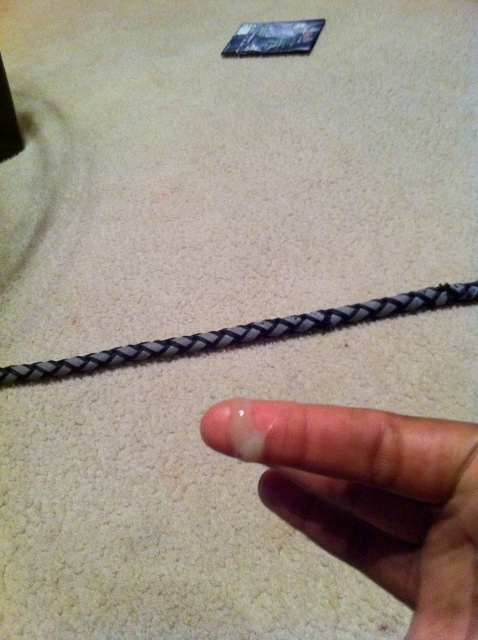QuestionI have recently purchased a pomeranian in hopes of breeding him. Yesterday I discovered that he has demodex mange. The vet and every article that I saw has recommended not to breed him. My husband does not agree with this he says it does not make sense why he cannot be breed. That once the mites are dead they are dead there is nothing more to worry about (like fleas) He does not want him neutered I am looking for something to tell him to change his mind. I said that if nothing else the sire could pass along a weak immune system he said that makes sense but still does not want him neutered?
AnswerHi Amanda:
Thank you for such an interesting & thought-provoking question. I can understand your husband's point of view, in that this is treatable; however, what he may not realize is most dogs (and most humans, too)actually have the demodectic mites that cause this reaction living on their bodies. On most dogs, this mite causes no problem, irritation or reaction; it only affects certain dogs due to as you stated, a poor immune system. To quote from Race Foster of Drs. Foster & Smith, "Demodectic mites of various species live on the bodies of virtually every adult dog and most human beings, without causing any harm or irritation. These small (0.25 mm) 'alligator-like' mites live inside of the hair follicles (i.e., the pore within the skin through which the hair shaft comes through), hence the name follicular mange. In humans, the mites usually are found in the skin, eyelids, and the creases of the nose.
Whether or not Demodex causes harm to a dog depends on the animal's ability to keep the mite under control. Demodectic mange is not a disease of poorly kept or dirty kennels. It is generally a disease of young dogs that have inadequate or poorly developed immune systems or older dogs that are suffering from a depressed immune system.
Demodectic mange is not an inherited condition, but the suppressed immune system that allows the puppy to be susceptible to the mites can be. Remember that all puppies receive the mites from their mother, but only a few have ineffective immune systems and develop the mange. This sensitivity can be passed genetically through generations. Individuals that have a history of demodectic mange, and their parents and siblings, should not be bred. Through careful breeding, most cases of generalized demodicosis could be eliminated.
The immune system condition that allows for the development of demodectic mange can be an inherited condition, and breeding of these animals should not occur."
Perhaps this will convince your husband that breeding an animal with a known health issue isn't a responsible thing to do. He'd essentially be producing future heartache & ongoing expensive treatment/veterinary expenses for prospective owners & a lifetime of illness & discomfort for the dogs produced. While it's possible not ALL puppies would inherit the father's poor immune system, chances are a high number would, which I feel doesn't benefit anyone, particularly the breed itself.

 In heat or not in heat
QuestionQUESTION: Hello I have a boxer that I am planni
In heat or not in heat
QuestionQUESTION: Hello I have a boxer that I am planni
 Supplemental puppy feedings
QuestionQUESTION: My sweet little Boston girl (Domino)
Supplemental puppy feedings
QuestionQUESTION: My sweet little Boston girl (Domino)
 How often can my male breed?
QuestionRhapsody
QUESTION: I just recently start
How often can my male breed?
QuestionRhapsody
QUESTION: I just recently start
 whelping dogs legs giving out on her
Question
Roxie and the puppies
My dog had a litter of p
whelping dogs legs giving out on her
Question
Roxie and the puppies
My dog had a litter of p
 english bulldog
Question
pulse
my english bulldog was ai on dec 22 2010
english bulldog
Question
pulse
my english bulldog was ai on dec 22 2010